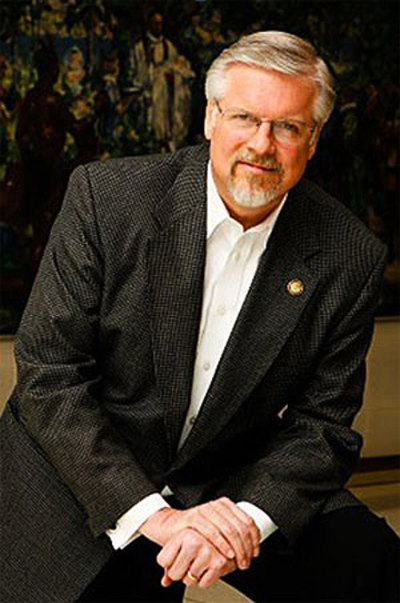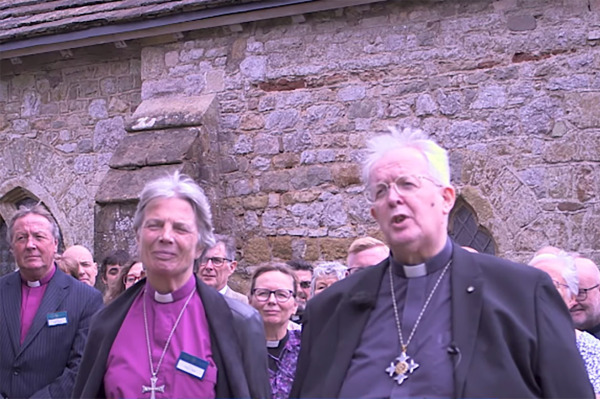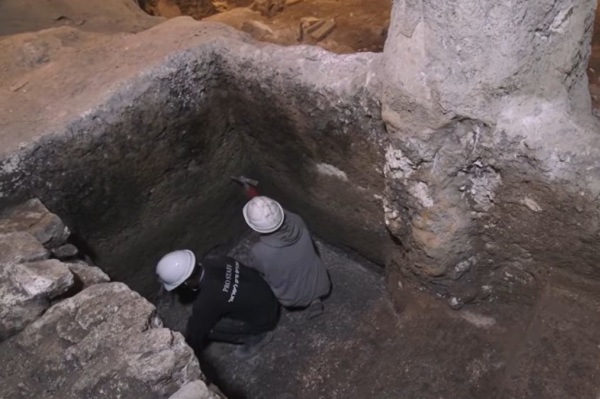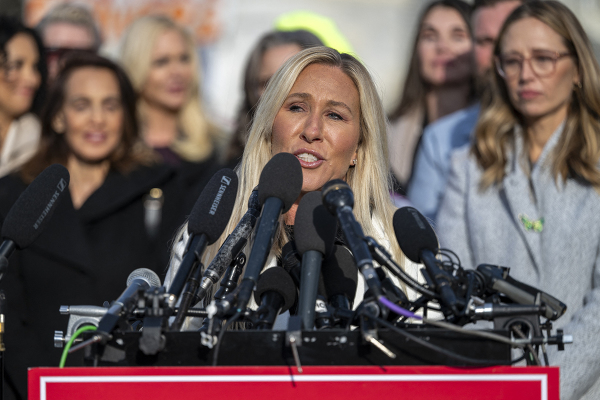To Virginia governor: No gov't should diminish what God's economy freely affords
I live in the Tar Heel state, the great state of North Carolina. My wife, Kim, hails from Norfolk, Virginia. So over our 41 years of marriage, I've come to love the Old Dominion State.
Only days after a lawsuit was filed against coronavirus restrictions in Virginia, preventing churches from having more than 25 parishioners in a worship service, Governor Ralph Northam told Christians at a press conference:
"Christmas is two weeks away. The holidays are typically times of joy and community. We gather together, we celebrate our faith, and we celebrate with family. But this year, we need to think about what is truly the most important thing. Is it the worship or the building? For me, God is wherever you are. You don't have to sit in the church pew for God to hear your prayers. Worship with a mask is still worship. Worship outside or worship online is still worship."
It's not a stretch to say most churches have particular beliefs that dictate Christians should gather in-person regularly for worship. Preferably religious services should be held indoors rather than outdoors, and the government should never impose a number on how many worshippers are allowed.

Furthermore, there are specific reasons for church buildings with their beautiful sanctuaries. Unfortunately, sometimes these reasons are little understood, and even their importance unwittingly disparaged by the church's members.
The church sanctuary's purpose is to provide a place where the atmosphere is conducive for inspiring one to worship, not always an easy task for earth-bound, fleshly entities, as ourselves. The sanctuary isn't like a place in the commercial or the secular world; neither is it like our home-life. Instead, it's more of a refuge from the troubles and anxieties of what is mostly a profane and irreligious world.
Christians of yesteryear seemed to understand this better than some believers today. So they constructed grand cathedrals and church houses to reflect God's majesty and provoke the most in-depth experience of worship from the people. One might rightly argue this was the lesson God gave in Bible times to the Hebrews in commanding them to build the Temple.
One Catholic writer, Msgr. Charles Pope presents the argument in this fashion:
"Churches are also meant to remind us of Heaven. Until recent decades, they were built along lines that spoke to heavenly realities both Moses and John saw as they were shown the heavenly worship and vision. Churches have high jeweled (stained glass) walls because Heaven does. Churches have glorious throne-like altars with the tabernacle at the center amidst tall candles because in Heaven, there is a throne-like altar with the Lamb upon it, and Jesus stands among the lampstands… Paintings and statues of saints and angels, incense, priestly robes, standing/kneeling appropriately, and singing hymns remind us of the communion of saints and angels in the heavenly worship. All of this is revealed in the heavenly visions contained in the Bible."
History tells us that most public worship became a crime during Oliver Cromwell's seventeenth-century England, and thousands of church buildings were torn down. However, one man built a Church, even then, that stands to this day, The Chapel of the Holy Trinity at Staunton Harold. The reason for its endurance can be interpreted from the inscription posted over its door:
Yes, gathering for worship in a holy place dedicated to God, a house of prayer and godly instruction, with all the trappings meant to draw and stir the heart, can provide "the best things in the worst of times, and give hope in the most calamitous."
We should never underestimate the profound relationship between the externals and the internals of religion. To do so will only produce its own calamity. If one were to take Governor Northam's logic to its natural end, it might be concluded that there is no need for church assemblies and church houses anymore.
Is this what the Governor and other leaders around the country actually want, to leverage the pandemic as a way to weaken religion's influence on society, while strengthening the power of government? Keep your faith to yourselves and out of public life. It's a legitimate concern.
So the question shouldn't be whether one's faith can be sustained by having to worship outside or online, etc. Of course, it can. But the question ought to be: Why should worshipers be relegated to such means when there is no substantial scientific evidence suggesting in-person, indoor church worship services pose any more of a health risk than gatherings at commercial or other facilities? The health risks can be sufficiently mitigated with similar safety protocols used by businesses.
Moreover, on what authority does the Governor decide a virtual meeting or outside worship services should be sufficient for most persons of faith? There is no mandate in Holy Scripture that provides him with the wisdom or authority to make such a judgment. Neither is there any constitutional authority for making such a policy!
Shall churches stop people at the door who wish to worship, and where there is sufficient room because 25 people are already inside the sanctuary? The expectation is absurd. Such action would be obedience to men, but disobedience to God.
The real issue is whether any man or government authority should be allowed to diminish or impoverish what God's economy freely affords to everyone.
I pray that my brethren in neighboring Virginia prevail in their lawsuit. If not, civil disobedience would be appropriate.
Rev. Mark H. Creech is executive director of the Raleigh-based Christian Action League of North Carolina Inc.





















